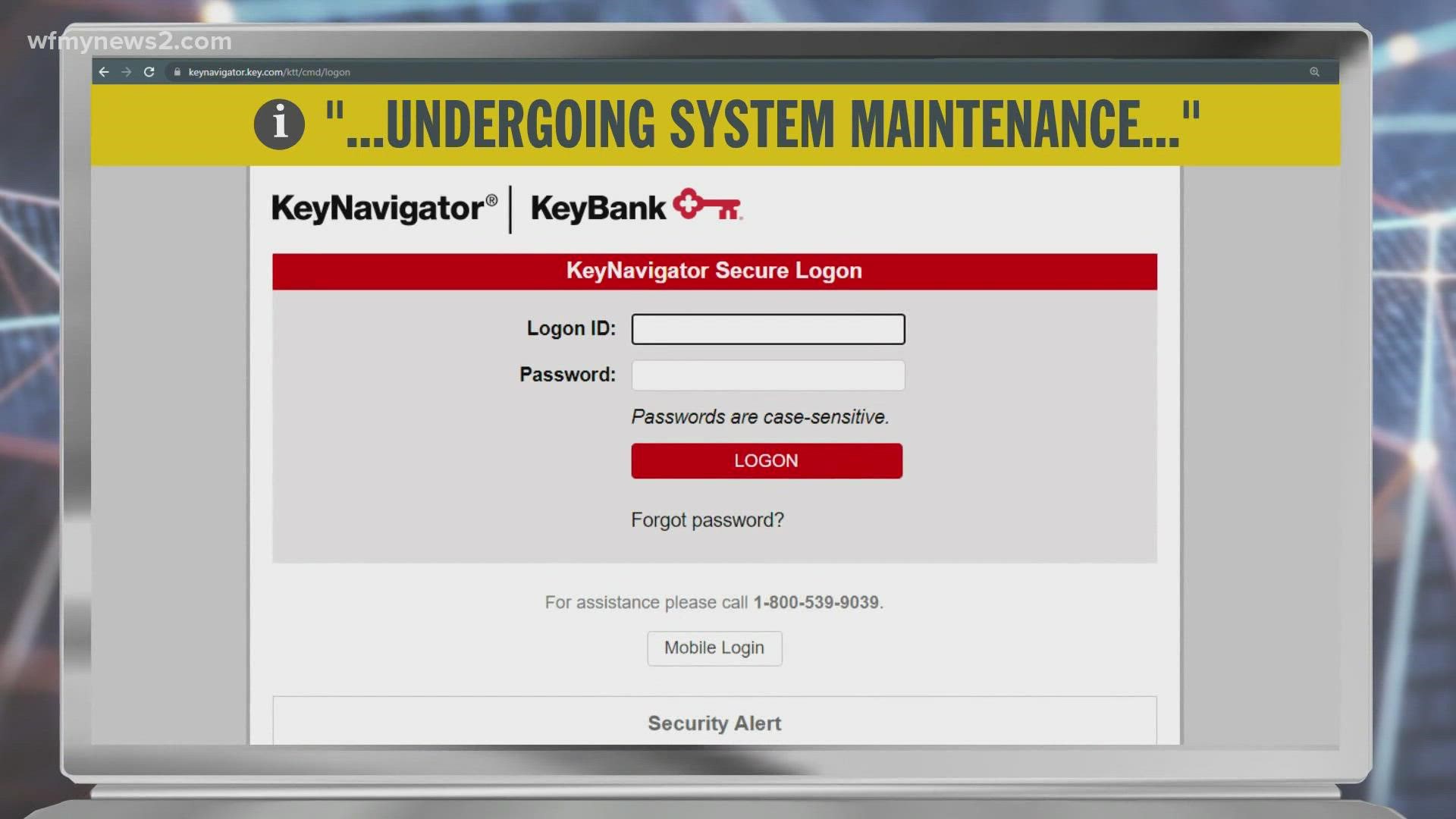GREENSBORO, N.C. — Say you want to renew your driver's license, most of us would Google where and how you do that. It’s a pretty common thing to do, but when you do that, all kinds of entries come up. Let’s say you see an entry that is DMV.org and you click on it. When it pops up, it is a site where you can renew your license, but they're not the official state site, they're a third party and will charge you a fee.
This kind of advertising is legal, but there are a lot of scam sites out there too. You really need to pay attention to the website address. It could cost you big time.
For example, a worker at a small business was Googling the bank website the small business uses for payroll. She typed in 'key navigator' and clicked the first listing on google.
It looked like the website, so she logged in with her password and then the website popped up saying the site was undergoing maintenance, but it was a fake website trying to throw her off and stalling for time so the scammers could use her info to make withdrawals. Scammers took $249,000 out of the small business bank account.
“The criminals are very good at this, they've actually really perfected this over time. It's a business,” said Donna Gregory, FBI unit chief.
Key Bank confirmed a "trend" of "spoofed websites" and said it has "identified and helped to take down approximately 150" of those fake sites.
The small businesses contract with the bank called for it not to allow payouts greater than $25,000 per week, but the bank didn't take responsibility for the lost money. The bank and the small business have come to a settlement for recovering the money.
The big picture warning is to all consumers is don't just Google a site --check the website address to confirm it's correct.

